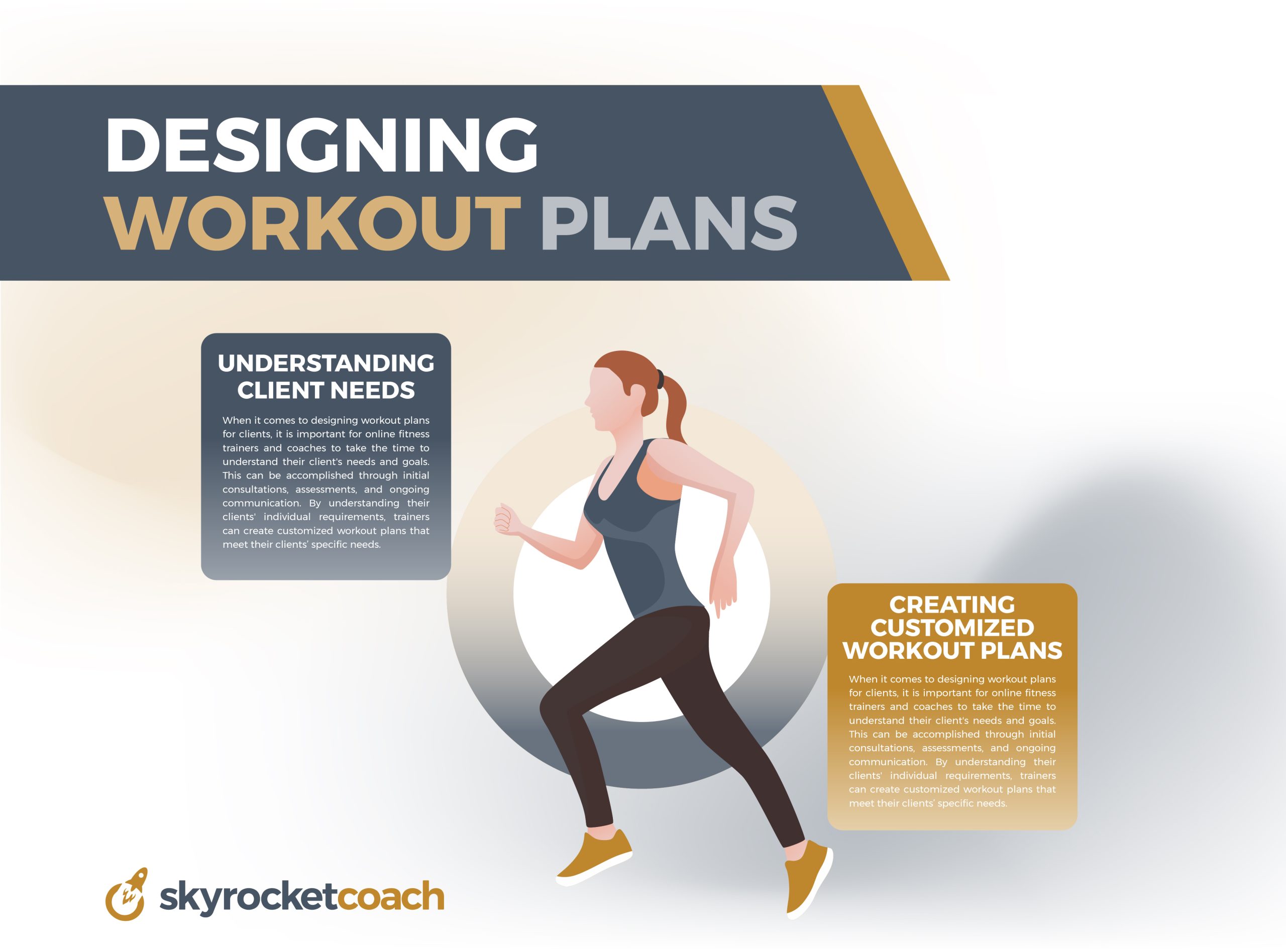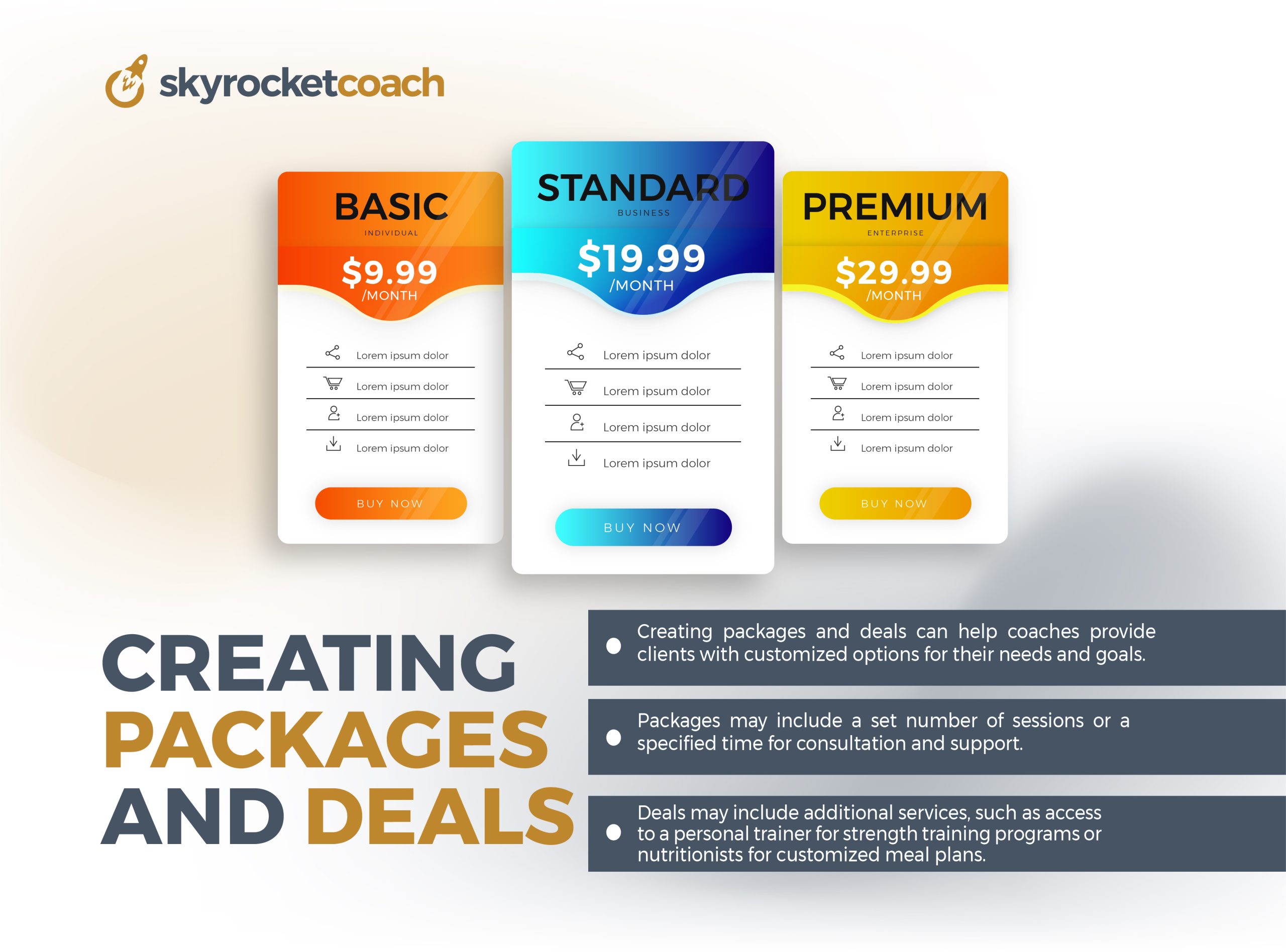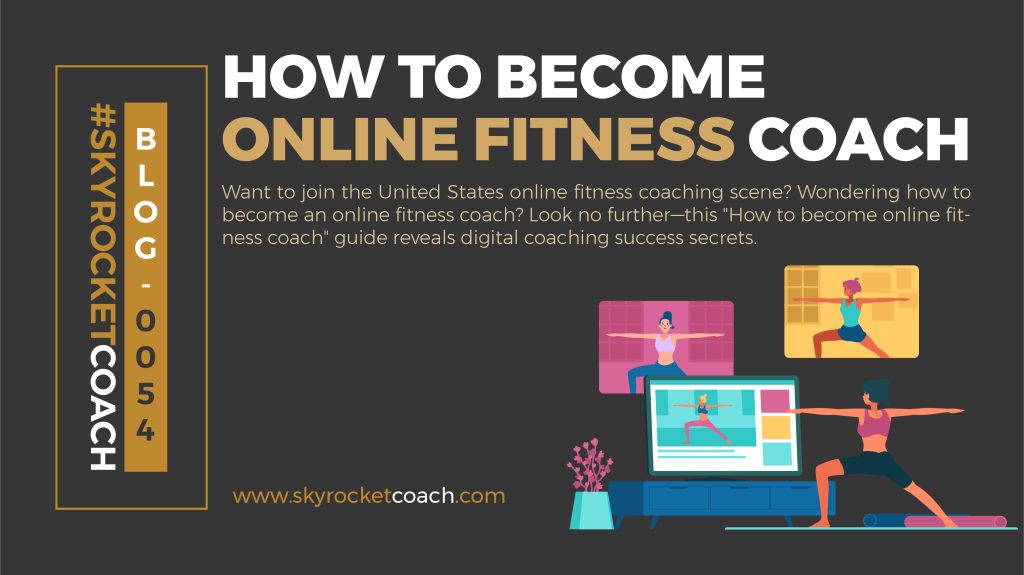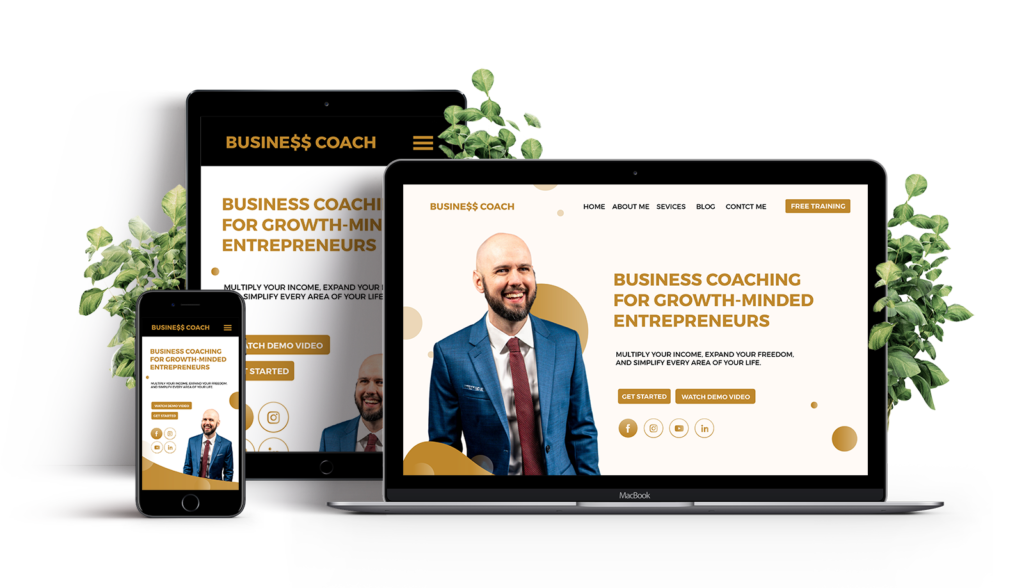Want to join the United States online fitness coaching scene? Wondering how to become an online fitness coach? Look no further—this “How to become online fitness coach” guide reveals digital coaching success secrets.
Online fitness coaching has gained popularity in recent years due to its convenience and accessibility. With advancements in technology, people can now work with a personal trainer or coach from anywhere in the world through virtual platforms. Online coaching is more convenient than face-to-face meetings because it lets people work at their own pace and on their own time.
In this blog post, we’ll discuss what online fitness coaching is, its benefits, and how it can help individuals reach their fitness goals.
Read on to uncover the keys to becoming a successful online fitness coach.
Table of Contents
What Is Online Fitness Coaching?
Online fitness coaching is a form of virtual training that involves working with a personal trainer or coach through an online platform. It incorporates various forms of communication, such as video calls, messaging, and emails, to keep track of fitness progress, provide motivation and guidance, and modify workouts if necessary. Online coaching can cover a range of fitness goals, such as weight loss, muscle gain, and overall health and wellness.
Benefits Of Online Fitness Coaching
- Convenient and Flexible: Online fitness coaching eliminates the need for in-person sessions and allows individuals to work with their personal trainer or coach from the comfort of their own homes. This allows for greater flexibility in scheduling and is especially convenient for those with busy schedules.
- Personalized and Customized Workouts: Online coaches can create personalized workout plans based on an individual’s fitness level, goals, and preferences. Also, coaches can modify workouts to ensure that individuals progress and avoid injury.
- Affordable: Online fitness coaching is often more affordable than in-person sessions due to the elimination of travel and other associated expenses.
Types Of Clients You Can Work With
- Fitness Enthusiasts: Individuals seeking expert guidance to enhance their workout routines.
- Beginners: Those new to fitness need foundational support.
- Special Populations: Clients with specific health conditions or unique needs.
- Athletes: Tailor training programs for athletes pursuing specific performance goals.
How To Become Online Fitness Coach?
-
Education And Certification Qualifications
- Education Requirements
- A background in exercise science, kinesiology, or a related field.
- Stay updated on the latest fitness research and trends.
- Top Fitness Education Providers (Professional Certifications)
Some of the top online fitness coach certification providers for personal trainers and coaches include the International Sports Sciences Association (ISSA), the National Council on Strength and Fitness (NCSF), the National Academy of Sports Medicine (NASM), the American Council of Exercise (ACE), National Strength and Conditioning Association (NSCA), National Council for Certified Personal Trainers (NCCPT). These organizations offer a variety of certifications and specializations, from general personal training to sports performance and corrective exercise.
Note: When choosing an online fitness coach, it is important to inquire about their education and certification to ensure they can provide guidance and support in your fitness journey.
- Insurance Requirements
- Secure liability insurance to protect against potential risks.
- Licensing Requirements
- Check local regulations for any required licenses or permits.
-
Building A Personal Brand
- Creating a Personal Brand
Establishing a personal brand is crucial for online fitness trainers and coaches. A strong personal brand helps to create recognition, establishes an expert identity, and builds trust with prospective clients. In order to build a personal brand, it is important to define the brand identity and unique selling proposition. This means identifying personal values, mission, and niche within the fitness industry.
- Effective Social Media Strategies
Social media is a crucial tool for building a personal brand and connecting with prospective clients. Effective strategies for social media include consistent posting and engagement with followers. Posting high-quality content that aligns with the personal brand is essential in establishing expertise and building trust. Utilizing engagement tools such as polls, Q&A sessions, and live videos also helps to foster a sense of community among followers.
-
Designing Workout Plans

- Understanding Client Needs
When it comes to designing workout plans for clients, it is important for online fitness trainers and coaches to take the time to understand their client’s needs and goals. This can be accomplished through initial consultations, assessments, and ongoing communication. By understanding their clients’ individual requirements, trainers can create customized workout plans that meet their clients’ specific needs.
- Creating Customized Workout Plans
Once trainers have a clear understanding of their client’s needs, they can design workout plans that are tailored specifically to them. This includes selecting exercises and activities based on the client’s fitness history, level of experience, and overall goals. Trainers can also create customized plans for clients with specific needs, such as injury recovery or pre/postnatal exercise.
-
Nutrition And Meal Planning
- Importance of Nutrition
Online fitness trainers and coaches understand that nutrition is a vital aspect of a client’s fitness journey. Creating customized meal plans and offering nutritional guidance can significantly impact the success and progress of their clients. Therefore, understanding and prioritizing proper nutrition is an essential aspect of successful online fitness coaching.
- Creating Meal Plans and Guidelines
Once a trainer has assessed their client’s nutritional needs and preferences, they can design a custom meal plan that aligns with their client’s fitness goals. The meal plan should match the client’s lifestyle, dietary restrictions, and macro-nutrient requirements. The trainer can also provide clients with guidelines and tips to help them stick to their meal plan, such as preparing meals in advance, tracking their progress, and adjusting the plan as needed.
-
Coaching Techniques
- Motivational Strategies for Clients
Effective online fitness coaching requires trainers to implement motivational strategies to encourage clients to achieve their fitness goals. A coach may use positive reinforcement to help clients acknowledge their successes and progress in their fitness journey. They may also offer encouragement during moments of struggle or lack of motivation. Celebrating small wins and personal milestones may also help clients maintain motivation and develop a sense of accomplishment, leading to consistent progress toward their goals.
- Effective Communication Skills
Clear and effective communication is vital in online fitness coaching. Trainers must communicate effectively with their clients. Explaining what is expected of them and how best to achieve their fitness goals. They may use various communication tools, such as messaging, video-conferencing, and emails, to keep in touch and offer support. Setting clear expectations and goals and ensuring clients understand their program can help build trust between the coach and client and establish a positive relationship.
-
Setting Prices
- Pricing Strategies in Online Fitness Coaching
To run a successful online fitness coaching business, coaches must determine the most effective pricing strategy to attract clients and keep their business sustainable. There are various pricing strategies coaches can use, such as flat fees, tiered pricing, or monthly subscriptions. Flat fees may work best for short-term programs, while tiered pricing may be an effective option for clients seeking more extensive guidance and support.
Another online coaching fitness price is to offer a new client special. This may include a discounted rate or a package with additional perks, such as personalized nutrition plans. Offering an introductory deal can help generate interest and attract new clients.
- Creating Packages and Deals

Creating packages and deals can help coaches provide clients with customized options for their needs and goals.
Packages may include a set number of sessions or a specified time for consultation and support.
Deals may include additional services, such as access to a personal trainer for strength training programs or nutritionists for customized meal plans.
-
Launching And Marketing
- Launching Your Online Fitness Coaching
Once a coach has set their prices and packages, they can launch their online fitness coaching business by creating a website and social media presence. The website should include a clear description of the coach’s services, packages, prices, and any additional offerings.
Coaches can also include client testimonials and success stories to showcase their expertise and build credibility. Also, social media promotes the business by sharing content related to fitness and wellness, as well as interacting with potential clients.
- How To Market Online Fitness Coaching? (Effective Marketing Strategies)
Effective marketing strategies for an online fitness coaching business include utilizing social media platforms, such as Instagram and Facebook, to showcase success stories, share tips and advice, and promote packages and deals. Coaches can also consider running targeted ads on these platforms to reach a larger audience.
Also, collaboration with other fitness and wellness professionals, such as personal trainers, nutritionists, and yoga instructors, can help expand a coach’s network and attract new clients. Finally, offering free consultations or webinars can also help generate interest and establish the coach as a knowledgeable and valuable resource in the industry.
Can You Be An Online Personal Trainer Without Certification?
While it’s feasible to work as an online personal trainer without formal certification, it’s not advisable. Certification not only validates your expertise but also instills confidence in clients. Certification ensures that trainers possess the necessary knowledge and skills to guide clients safely and effectively.
Similarly, clients prefer certified trainers for credibility and expertise. Obtaining certification from reputable organizations such as NASM, ACE, or ISSA is crucial for professional growth and client trust in the competitive fitness industry. Always prioritize education and accreditation to provide a high standard of service and maintain the integrity of the profession.
Final Thoughts: The Journey Of How To Become Online Fitness Coach
Becoming an online fitness coach requires dedication, hard work, and a willingness to learn and evolve continuously. The biggest challenge for coaches is standing out in a saturated market and attracting clients. This can be overcome by providing exceptional service, building a powerful brand, and effectively marketing the business.
However, there are also many opportunities in the online fitness coaching industry. With the rise of digital technology and virtual communication, coaches can connect with clients worldwide and expand their reach. Also, as more people prioritize health and wellness, the demand for online fitness coaching services is rising.
If you want more guidance and support, you can contact Skyrocket Coach. We can help you. With us, you can positively impact people’s fitness journeys worldwide while advancing your career.
FAQs About How To Become Online Fitness Coach
Q: How much can you charge as an online coach?
A: An online fitness coach’s salary depends on their work experience.
But generally range from $50 to $200 per session. Factors like expertise, services offered, and market demand influence pricing.
Q: Is it cheaper to have personal training sessions online or in-person?
A: Online sessions are typically more cost-effective. Without physical facility costs, online coaching allows for competitive rates, offering clients a budget-friendly alternative.
Q: How do I brand myself as a coach?
A: Define your niche, create a professional online presence, and showcase expertise. Use social media, emphasize a unique coaching style, and highlight client success stories to build a compelling and recognizable coaching brand.
Q: What technology should I use as an online fitness coach?
A: Invest in reliable fitness tracking apps, video conferencing tools, and communication platforms. Stay updated with technological advancements in the fitness industry.




Recent Comments